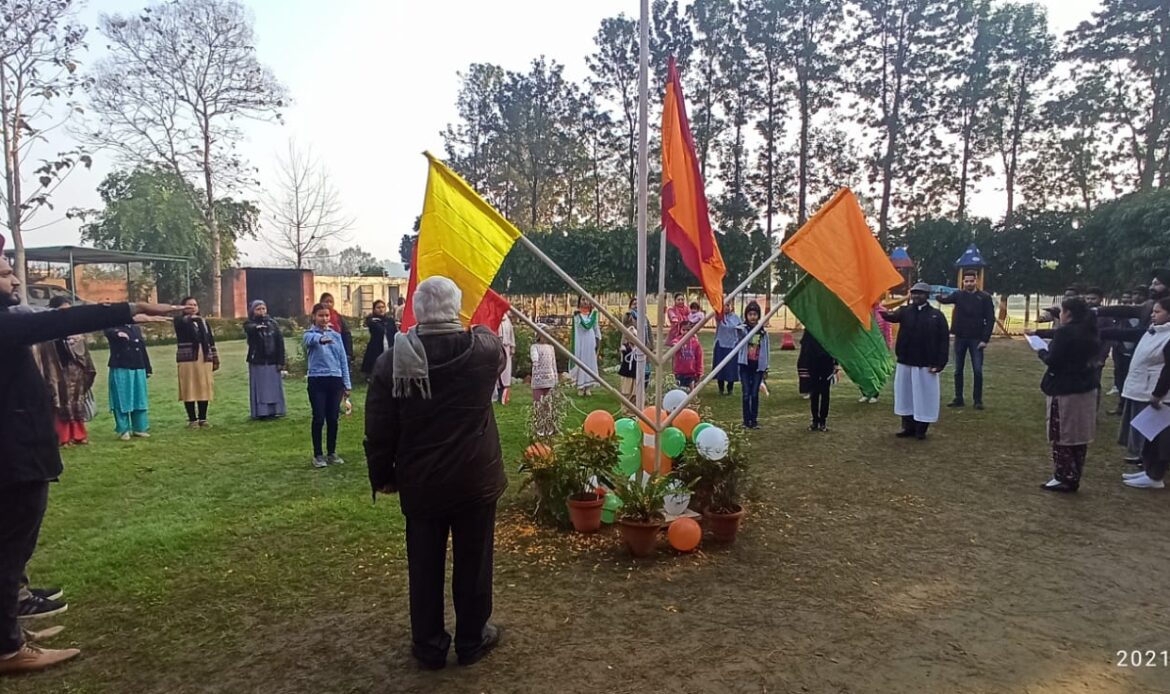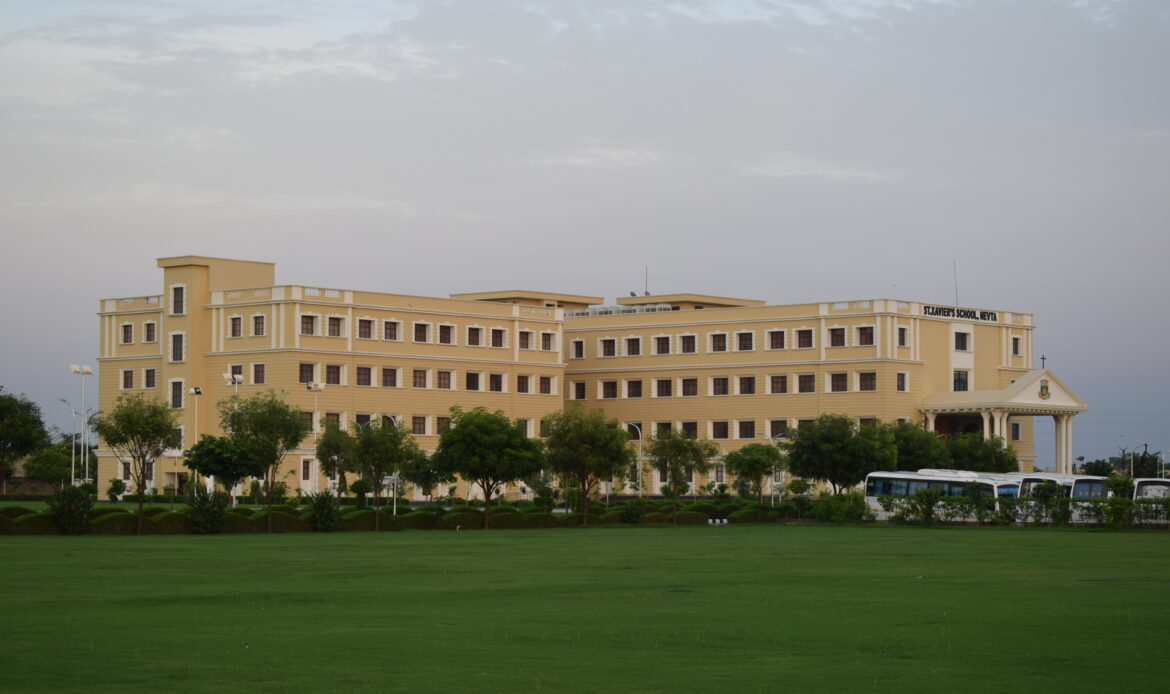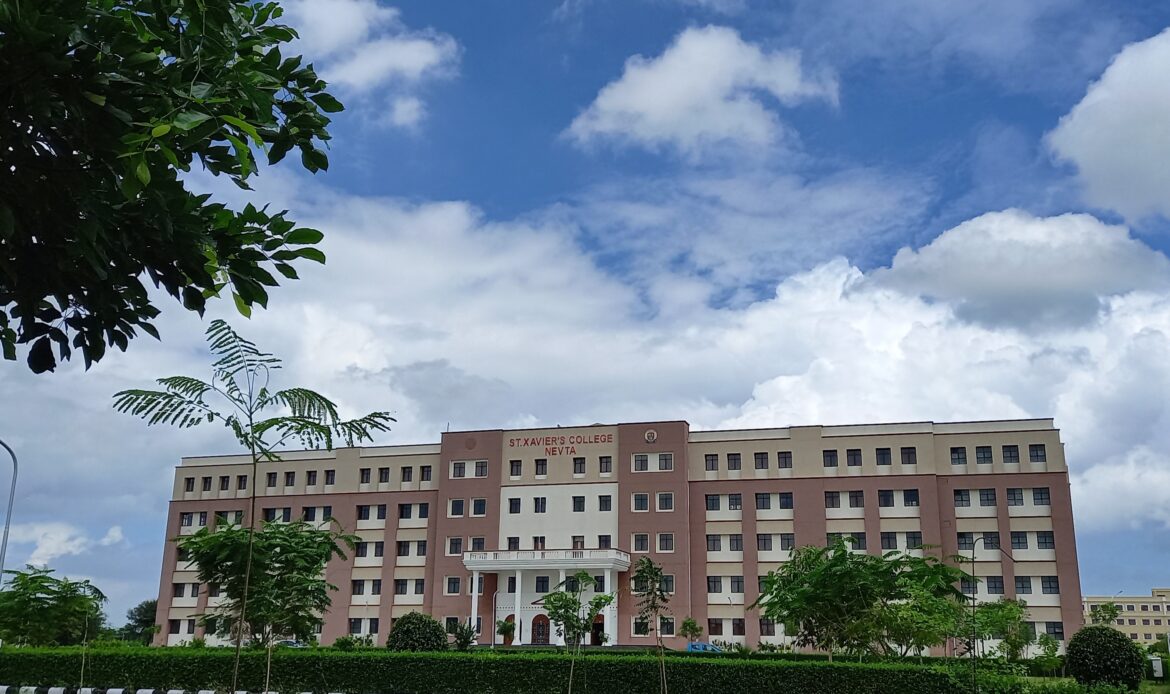Jesuit Education is inspired by a vision of a person drawn from the life and teaching of Jesus Christ who has always been respected and admired by the people of India. It is also based on the principles of CHARACTER formation elaborated by St. Ignatius of Loyola, the founder of the Society of Jesus. This vision and these principles give Jesuit Educational Institutions a specific character and set before their staff and students high ideals of humanism and services towards which they are invited continually to strive. We believe in a Christian Social Ethic whereby justice is an absolute requirement of faith in God as our Father and the acceptance of each other as brothers and sisters in His sight. As Jesuit educators, our strong concern and effort is to aid the development of the WHOLE PERSON so as to be fully human, fully Indian, and truly modern. We aim that our student is open to growth, intellectually competent, religious, loving, and committed to faith and justice. Jesuit school thus aims at making its own contributions towards a radical transformation of present day social conditions so that the principles of social justice, equality of opportunity, genuine freedom, and respect for religious and moral values enshrined in the Constitution of India may prevail, and the possibility of living a fully human existence may be open to all.
The Jesuit school/college aims at the integral, personal growth of the young. To accomplish this, special efforts are made.
To help the students to become mature, spiritually oriented men of character.
To encourage them continually to strive after excellence in every field.
To value and use judiciously their freedom;
To be clear and firm on principles and courageous in action;
To be unselfish in the service of their fellowmen;
To become agents of needed individual and social change.
The Jesuit school thus aims at making its own contribution towards a radical transformation of present day social conditions, so that the principles of social justice, equality of opportunity, genuine freedom, respect for religious and moral values enshrined in the constitution of India may prevail and the possibility of living a fully human existence may be open before all.




Secondary Educational Institutions
The world is charged with the grandeur of God' (G.M. Hopkins SJ). God is at the heart of his creation, which shares in his mystery, and God is at work in human history. Jesuit education therefore facilitates the discovery of and encounter with God in the world around us. We are called to find "God in all things."
Jesuit education is intended as a preparation for a life of active social commitment. Jesuit students are encouraged to understand their own “place” in the world, in terms of educational and socio-economic opportunities, and to use these opportunities in compassionate service of others, especially those whose opportunities have been less than theirs or who are the victims of poverty and injustice. We aim to facilitate the emergence of young women and men who will exercise leadership in terms of these values and seek to be agents of change, not more or less passive upholders of the status quo.
Higher Educational Institutions
Education in the Jesuit tradition is a call to human excellence. It develops the whole person, from intellect and imagination to emotions and conscience, and approaches academic subjects holistically, exploring the connections among facts, questions, insights, conclusions, problems, and solutions.
The Ignatian tradition guides a formative process in and through teaching, learning and governance that emphasises the awareness of God’s active presence in human life in positive and life affirming ways. This leads the learner to become socially conscious to care for the other, men and women for others. Self, God/nature and others altogether form a triadic locus in which the learner forms her/his personality that influences social change. The Jesuit tradition has a distinguished history of five centuries and has in every age, in every place, at every level, pursued and delivered educational excellence. In Jesuit higher education, this ‘striving for more’ is understood in terms of the quality of education, the excellence in education and the access and the inclusiveness to this education it gives to the poor and the marginalised. More sharply, the Jesuit education strives for more in the creation of knowledge, the quality of knowledge, application of knowledge, and access to knowledge for the poor and the marginalised. Students are called to do their very best and to always strive for personal excellence in all aspects of life – intellectual, emotional, moral and physical.

